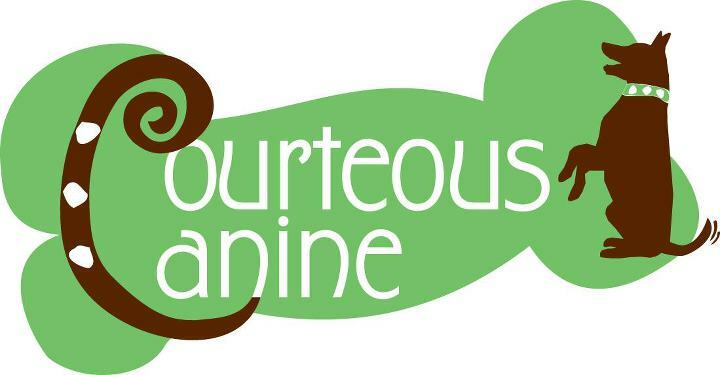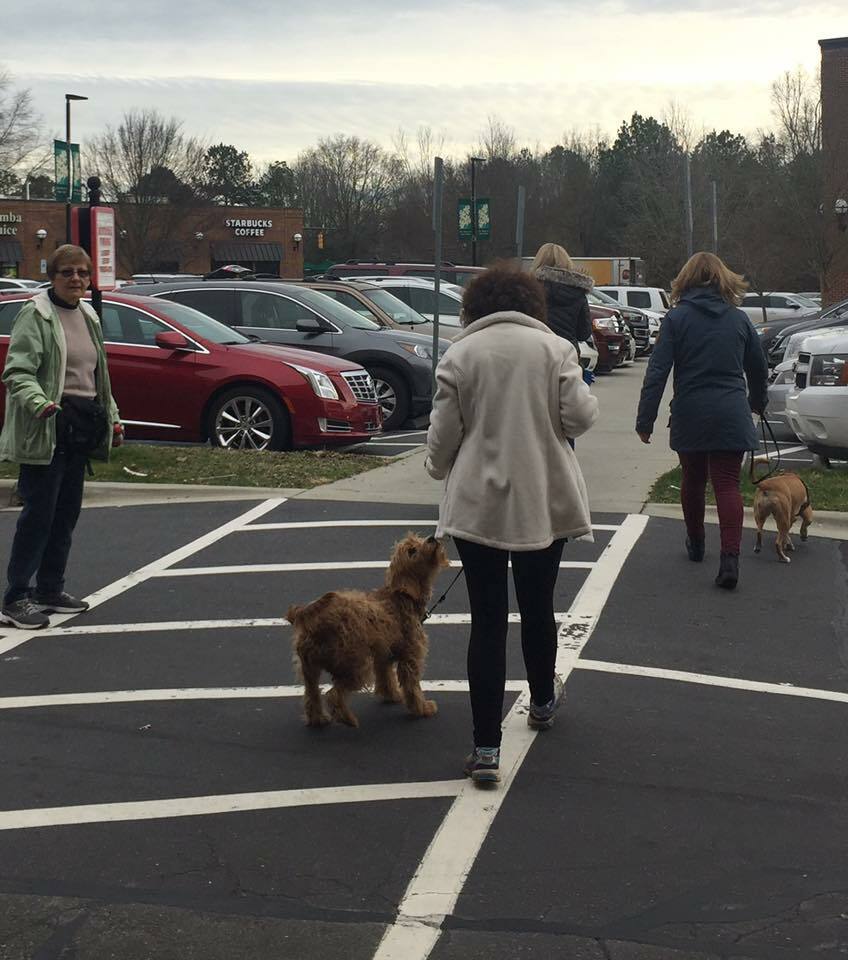Why Choice Matters When Training Your Dog

Jill Beitel, Owner & Lead Trainer at Courteous Canine, details how giving your dog choices and allowing them to exercise free will is an important part of the training and development process.
- 6 mins.
- Posted by Stand For Animals Staff
- Pet Training
What comes to your mind when you think of "dog training?" Perhaps a dog responding to commands, doing as he's told, obeying you and staying quiet and complacent when you are busy or otherwise occupied? Perhaps you've learned to believe that the way to have a "good dog" is to control him, be the alpha, and be sure not to let your dog "dominate" you. This notion has been demonstrated and emphasized in a popular and widely watched TV show, The Dog Whisperer, and perpetuated by many misinformed trainers all over the country: the message is that dogs shouldn't be given choices or they will think they are the boss.

Jill Beitel runs Courteous Canine, a dog training company, out of Charlotte.
Happily, I share with you that much progress has been made in recent years in animal behavior; canine cognition and emotions, and humane, effective training methods. Training is evolving from dominance and dictatorship, to effective communication and patient teaching. Treating dogs like the intelligent, responsive beings that they are - and even giving them (gasp) choices from time to time - doesn't create a pushy, difficult, or "dominant" dog as we've been led to believe. Interestingly, it has just the opposite effect.
Just as we understand that in raising confident, well-adjusted children we need to teach some independence and allow for some free thought and personality development, it is time we realize that this line of thinking would greatly benefit our dogs, as well.

Courteous Canine offers Out on the Town classes where training skills are practiced in real-life situations, like Piper Glen Shopping Center.
In my 25+ years of teaching and training dogs and puppies, staying on top of current research and advances in behavior modification and training practices has been a priority. I've learned to be okay about changing certain exercises and recommendations I use with clients in light of new info - that's what education and research is for! For example, I used to teach brisk, purposeful walks using a short leash with little opportunity to sniff because I thought dogs needed the physical exertion above other needs, and that the sniffing was just "goofing off." But since learning the myriad of benefits of sniffing and exploration, and the resulting mental stimulation, I now strongly encourage these "enrichment walks" as an important part of a dog's daily routine. Interestingly, sometimes dogs will choose to sniff/forage/explore, and sometimes choose to briskly walk or run with their person, perhaps fulfilling their current needs as only they know them. Perhaps the end result - a calm, happy pup at home - is more likely achieved when we let our dogs choose between acceptable options of enrichment.
Think about a normal day-in-the-life of a family dog: they have, sometimes by necessity, very few, if any, choices. Where and on what they sleep, where and when they eliminate, when and whether they go on walks, where they spend time when we are at work, what they get to eat and when they are fed, who they are allowed to meet and spend time with, whether or not they are given access to playmates and play sessions, whether they get to keep their reproductive organs, etc etc. Even if they feel nearly desperate for a walk or play session after days of being cooped up, they must wait until we make the choice to fulfill this need. When very hungry and more than ready for a meal, they must wait for us to provide this basic resource. In essence, we control nearly every aspect of our dogs' lives. If the tables were turned, this lack of control would cause the average person a great deal of stress. Though dogs are admittedly not human, is it really that far fetched to presume that they aren't stressed by this abject lack of choices in their lives? It is no surprise that today's family dogs are displaying more stress symptoms, including extreme anxiety and destructive compulsive behaviors, in recent years than ever before; research suggests that giving them a few more choices in their day-to-day living will enhance their lives and improve the relationship we enjoy with them.
The freedom to make choices increases confidence, reduces stress, and deepens the trust our dogs have in us. If we are consistent about rewarding "good" choices - such as chewing on their marrow bone rather than on the rug or shoe, for example - our dogs begin to choose bones over household items on their own because it is reinforcing on several levels, not just because if someone sees them chewing on shoes they'll be punished. This approach means less stress for dog as he learns and makes choices, and also means dogs will, in the long run, make these appropriate choices on their own, even when no one is watching or guiding them.
Encouraging free will and choices does not mean being shamelessly indulgent or permissive with our dogs. Take Twig for example... this one-year-old puppy flew in through the doggie door one day, seemingly quite excited and proud of himself, with half of a bright red cardinal in his mouth. Summoning calm and self-control, I resisted the urge to shriek or lunge at my dog, and instead smiled and asked him to drop his treasure. I had been practicing and proofing "drop" for months, but this - a novel creature just found and clearly coveted by this adolescent pup - was by far the toughest "drop" challenge he'd ever faced. He paused, as if to ask "really? THIS?", and then...released it from his mouth at my feet.
The way I taught Twig to drop items from his mouth was all choice-based. As a pup, once he learned what the word meant by pairing the action with the word, I asked for multiple drops every day - his chews, his toys, a pine cone, even a sock now and then - and joyfully celebrated and rewarded his choice to release the item, and then gave it back to him. Those times he chose to keep it, I typically let him, teaching him he really did often have a say in the matter, which I truly believe has strengthened this behavior immeasurably. Why hang onto it, run away with it, growl about it, when I can just hand it over, get a big party and play session, and then usually get it back??
So, is this "training?" Sure! But it is teaching/training with respect and choice. I believe we should all be using teaching methods that are based on fun games and choices that can earn rewards, and move steadily away from the "do it or ELSE" approach that is causing disconnect between dog and owner, and undeniable stress in our pet dogs. My experience in teaching in this way has proven that it works. Not only does it work, but unlike forceful, intimidation-based methods, there is no fallout, and no risk to the relationship you yearn for with your dog. In fact, training methods that emphasize your dog's needs and choices are by far the ones that your dog will enjoy the most. It is time for us to recognize that we can achieve happy, harmonious lives with our dogs without subjecting them to unfair teaching methods and without stripping them of the feeling that they have some say in their lives - a right that every living creature should enjoy. When given the choice between a method that your dog hates and one that your dog loves, which will you choose?
-Jill Beitel, Owner & Lead Trainer at Courteous Canine

Jill Beitel is the owner of Courteous Canine.


